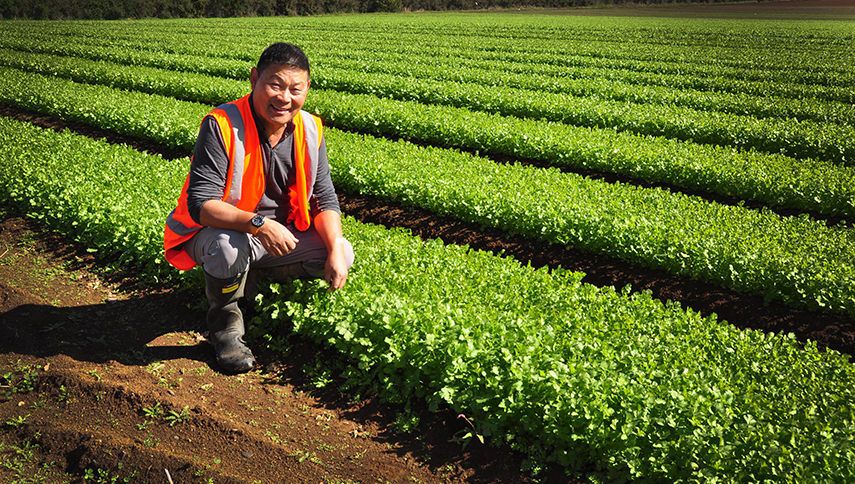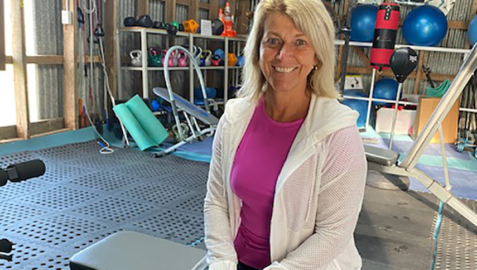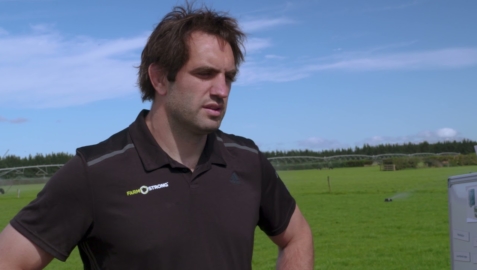
Slowing down and family time key
Module Overview
If Pukekohe market gardener and CEO of The Fresh Grower Allan Fong could dish out one piece of advice to his younger self, it would be to slow down and spend more time with his family.
The 65-year-old has recently stepped back from the job that has consumed his life since he was a youngster.
“My parents were from China and they started their own vegetable growing business in Pukekohe in 1950 and us kids would help out before school and after school every day,” Allan says.
Allan and his younger brother Colin eventually took over the farm and recently Colin’s three sons have taken up the reins.
“In the last 18 months I’ve stepped down a bit and am letting the young ones coming through take over a lot of the operational activities.”
Being a business owner is very high pressure and takes a toll on your health if you’re not careful, says New Zealand-born Allan.
“It’s not a 9am-5pm job and there is constant pressure. When I was younger, I used to work crazy hours. I was working 100 hours a week, seven days a week and then about 20 years ago I had a stroke. I had to learn to quieten down a bit and take it easy,” he says.
“I make sure I tell the young ones starting out to take breaks and have time off for holidays, take Sunday off, so they have more balance in their lives.”
Vegetable growing challenges
Allan says vegetable growing doesn’t have a high profile in New Zealand like pastoral farming or the kiwifruit industry does, however, it provides healthy, affordable food all year round.
“Our industry doesn’t receive government subsidies or grants and we aren’t part of a co-operative, so we very much have to stand on our own two feet.”
He says the vegetable growing sector is very competitive and as a result many growers have left the industry.
“For example, thirty odd years ago there were approximately 33 Chinese families vegetable farming in the area, now there are less than a handful. High compliance and costs also contribute to the reduction of farms.”
And COVID-19 has been particularly challenging.
“One third of our staff are usually backpackers and with the borders closed it’s very challenging to find people who like working in this industry, which in turn has a negative effect on our productivity,” Allan says.
“Hospitality businesses, such as restaurants, hotels and tourist resorts, represent 30% of our revenue. When lockdown happens and they close, it results in crops being unharvested and therefore a loss of income and jobs.”
Getting resource consent is another challenge.
“We’ve been trying to build a new vege packing shed for the last four years and only have three out of four consents ticked so it’s very challenging and slow.”
Having a break and delegating
Allan, who won a prestigious Australasian agribusiness award in 2016 acknowledging him as an outstanding innovator and leader, says he’s learnt that having breaks and delegating are important.
He managed to get away to the family bach at Waiwera at the end of the first lockdown.
“I hadn’t been there in 20 years. I did some work on it, but I was doing something different from my usual work, so it was a good change,” he says.
“I’ve cut back on the 3-4am starts and I can now delegate work to other people, which helps. I’m an old dog and my life was unbalanced with the amount of work I did,” he says.
Allan, who has two children, says there’s a big generational difference in the amount of hours people are expected to work.
“It’s okay to not work ridiculous hours. We know now that people need time off and to take a break to look after their wellbeing,” he says.
“Time goes so fast and before you know it your kids are grown up so it’s important to slow down and enjoy the moment.”
Farmstrong is an award-winning rural wellbeing programme that helps farmers and farming families live well to farm well. To find out what works for you and ‘lock it in’, check out our farmer-to-farmer videos, stories and tips on www.farmstrong.co.nz.


